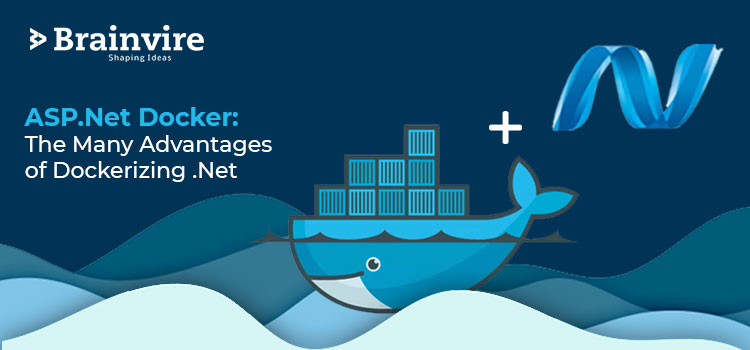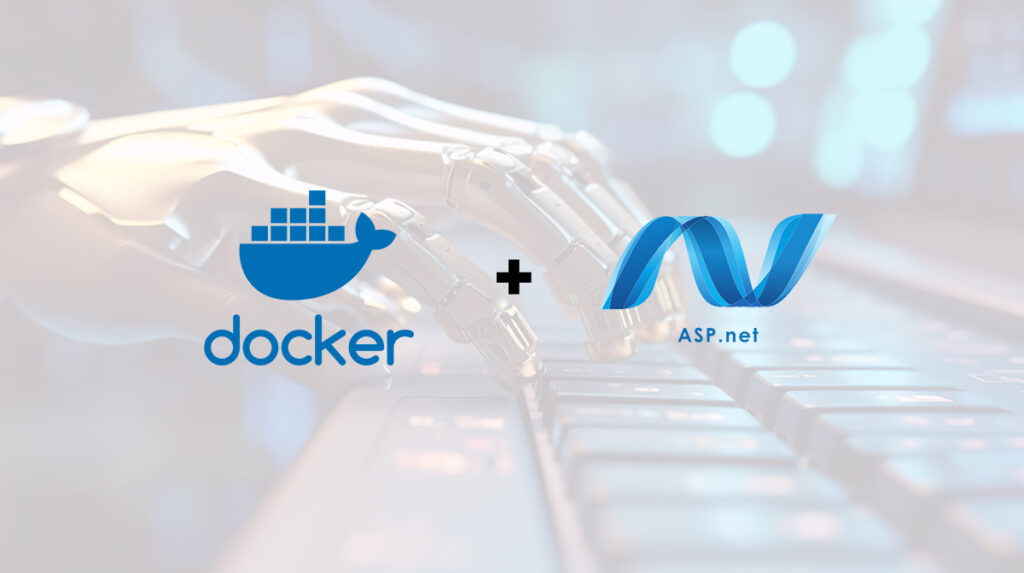
There is no denying that the Microsoft .net family has been popular among application developers, especially the .net framework and .net core. Thanks to its free, open-source, and cross-platform supportive nature, it is a preferred choice among businesses and developers at ASP.Net development company.
Although this is true, recently, another technology has created a buzz in the app development community. It is containerization. Containerizing applications enables one to execute the app in any kind of infrastructure and also allows running different applications on a single host. When speaking of containerization, Docker remains the ideal choice among ASP.Net Core development services.
Yes, its association with Microsoft makes it a perfect choice for applications, be it a mobile app for real estate or a finance management software built on the .net or .net core platform. But, there is a lot more, which the combination of the two offers. In this article, we will understand Docker and why ASP.Net Dockerizing is beneficial for you.
Docker: Understanding The Containerization Software
Before we move on to comprehend Docker, let us define the term containerization. The word is taken from the shipping industry, where a crane is used to deploy an entire container in a ship. Container technologies use a similar approach.
Docker, a container software based on platform as a service (PaaS), packages applications and their dependencies in a virtual container to ship it all as one unit. This enables an application to run in different environments. It also means that you do not have to configure the environment every time while testing or deploying the application.
The automation of the process lets you build, test and deploy apps at a faster rate. Docker consists of Docker Enterprise and Docker Community, suitable for enterprises and small teams or individuals, respectively. The containerization software platform makes various tasks simpler. With it, it is easier to develop highly scalable data systems, build a fully managed platform, create and run microservices architecture, and more.
Along with its features, there are multiple reasons why Docker is a favorite among ASP.Net Core development services providers. Here’s a breakdown of them:
- It is an open-source platform
- It packs applications, services, dependencies, and configurations, all in a container
- The virtualization of applications
- Allows execution of containers on cloud or on-premise
- Can be executed as a remote process
- Minimizes website and app downtime
- Its ease of use
- Improved scalability
- Supports microservices architecture
- Continuous deployment and testing
Now that we have an understanding of Docker, let us look at why dockerizing ASP.Net applications is beneficial for you.
The Advantages of Dockerizing ASP.Net Applications
Microsoft’s Support for Docker
Yes, Docker is designed for server applications that run in the background. This makes it an apt choice for .Net and ASP.Net products. But, that’s not all.
Microsoft is extending a significant amount of support to the Docker community. The software platform for containerizing applications is being integrated with various Microsoft products and environments. It provides users with a seamless experience when executing code.
By using Docker with ASP.Net products, businesses and ASP.Net Core development services providers find it secure and convenient to run and transfer applications.
Seamless Continuous Integration and Continuous Delivery Process
Continuous Integration (CI) and Continuous Delivery (CD) are the two popular software processes in demand today as it simplifies the execution of software procedures. However, in reality, the implementation gets tiring because of the need for configuration of environments each time to test or deploy an application.
With Docker, this complication is eliminated. Using Docker with CI/CD makes it easier to build, test and deploy applications. It ensures that the environment is the same as that in the production of the application, minimizing errors in the entire process.
A Pre-Established Environment
Setting up a server typically requires one to install certain software and environment variables required by the application. So, every time you run the application, you will need to set it up. This takes away a lot of time and effort.
With Docker, this is not the case. You can input all the requirements in the docker file, so the server is set up automatically when you switch on the system. This also holds for updates, where all you need to do is to redefine the container and deploy it again.
Automation of the process helps you save time on the maintenance of servers. No wonder Docker is preferred by ASP.Net development company.
Easy .Net Application Migration
With technology changing at a dynamic pace, operating systems that you used until now might not serve you as well as they did when it was launched. At the same time, businesses need to transfer their legacy applications to the latest versions.
Docker provides a unified level of the operating system. This not only makes application migration of legacy apps easier using the container technology but also carries benefits associated with the hardware components of the system like efficient memory usages and disk space.
Compatible with Cloud-Based Infrastructure
Today, cloud-based computing and technologies are revolutionizing application development.
Some of the popular ones used include Amazon Web Services and Azure. Both of these also provide support for containerization. Docker allows cloud data integration. It can integrate effectively with these cloud-based solutions to support single and multiple container technologies. Cloud migration was never this easier!
Efficient Use of Resources
One of the biggest advantages of dockerizing your ASP.Net applications lies in the way Docker utilizes resources.
Even in the case of multiple containers on a single host, the software platform decides on the number of resources it requires. This allows users like you to also impose restrictions on containers regarding the utilization of resources. Unlike conventional systems, where certain resources become unavailable, Docker helps maintain high uptime.
In Conclusion
The positives that Docker carries along with the support from Microsoft, Docker is gaining attention as a containerizing technology for .Net and ASP.Net app development. If you wish to leverage the trending technology, connect with us today!
Related Articles
-
How .Net Can Be Use to Build Robust and Complex Solutions?
Before starting with the development, it is advisable to be conscious about which platform do we choose for our developers’ team and make sure it is same throughout the floor.
-
ASP.Net Core: Your Answer to A NextGen Banking and Finance Web App Development
The days of waiting in long queues to open an account or deposit a check are long gone. Today’s modern customer demands quick finance management software solutions that enable them
-
Modern Web Development with .NET Core and ASP.NET Core
Staying ahead of the curve is essential in the fast-paced web and app development world. Whether you’re a seasoned developer or just starting, mastering .NET Core and ASP.NET Core can



